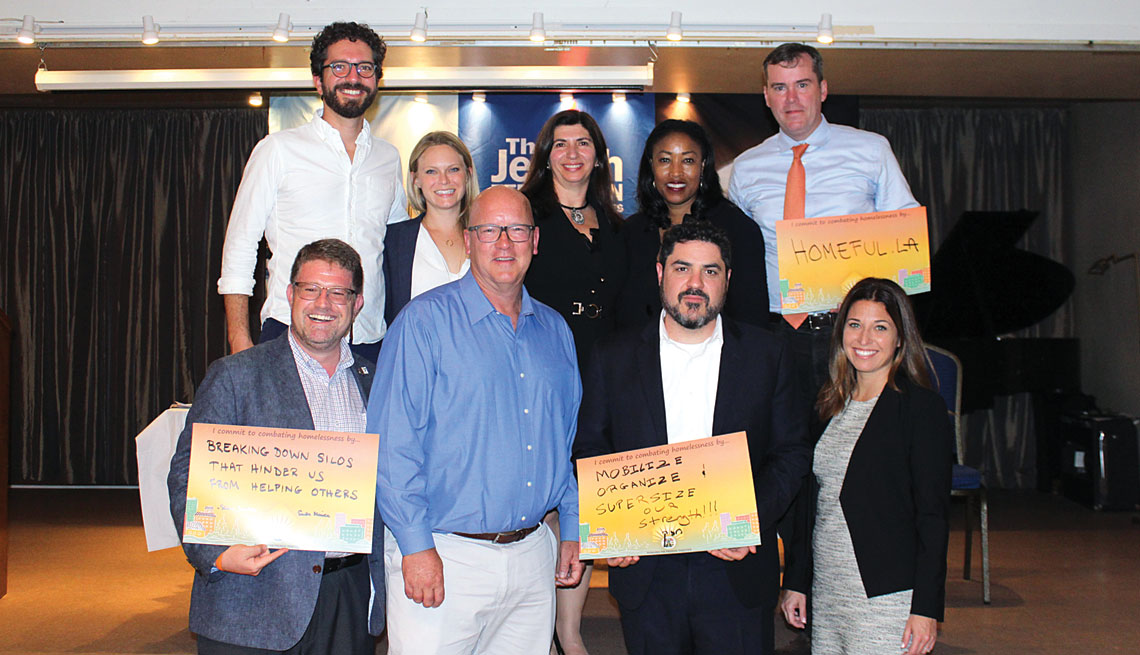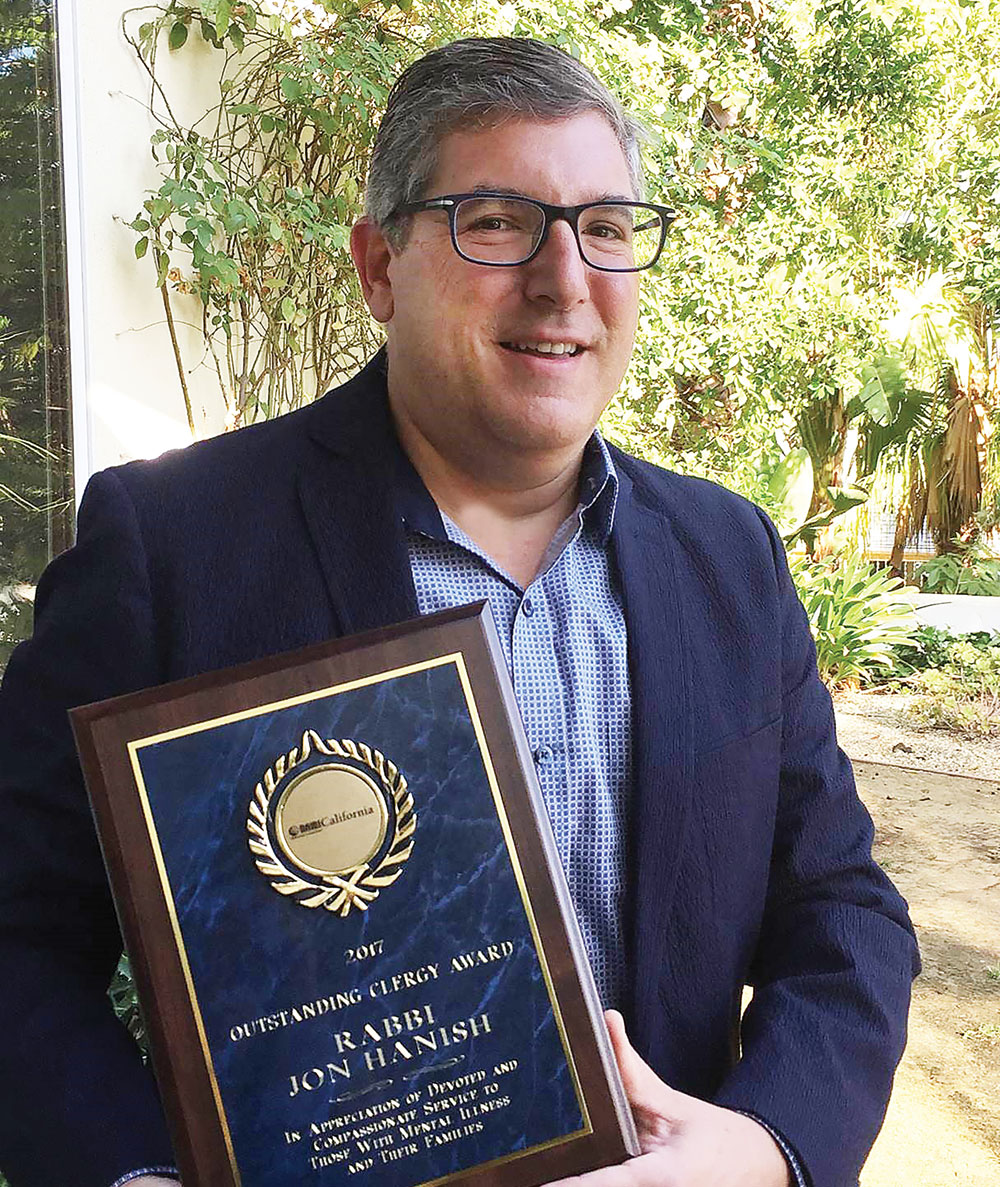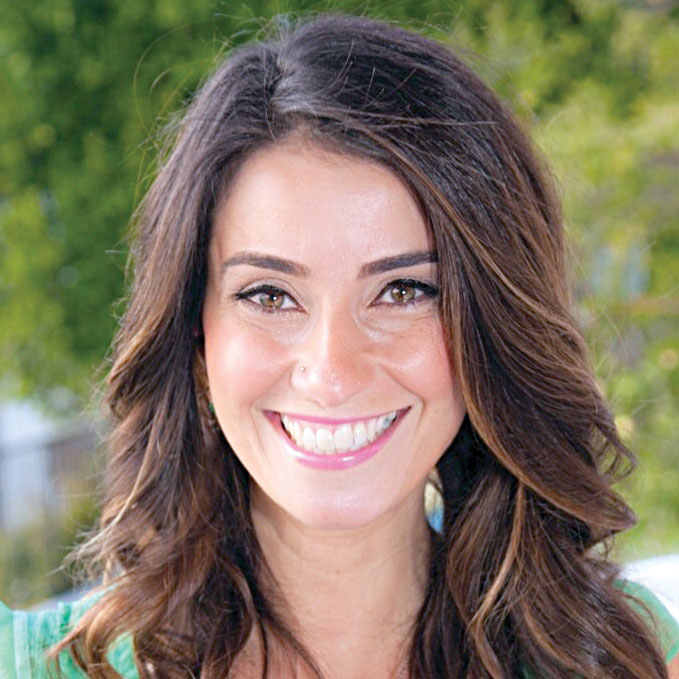 From left: “Azimuth” director Mike Burstyn; Egyptian actor Sammy Sheik; Israel Film Festival Director Meir Fenigstein and Jewish Journal President David Suissa attend a Beverly Hills screening of “Azimuth. Photo courtesy of Israel Film Festival
From left: “Azimuth” director Mike Burstyn; Egyptian actor Sammy Sheik; Israel Film Festival Director Meir Fenigstein and Jewish Journal President David Suissa attend a Beverly Hills screening of “Azimuth. Photo courtesy of Israel Film Festival Yiddish actor Mike Burstyn’s directorial debut, “Azimuth,” which tells the story of two soldiers during the last day of the Six-Day War in June 1967, premiered at an Aug. 24 Israel Film Festival event at the Ahrya Fine Arts Theatre in Beverly Hills.
Burstyn, 71, who also wrote the script, is the Bronx-born son of Yiddish actors. The Los Angeles resident first read the story about the two soldiers years ago and decided to develop it into a full-length film, which stars Israeli actor Yiftach Klein and Egyptian actor Sammy Sheik.
Sheik, who lives in Los Angeles, told Burstyn he loved the script.
“He called me back and said that, even though it’s an Israeli film, he wanted to do it because of the message it sends,” Burstyn said during a Q-and-A after the screening, conducted by Jewish Journal President David Suissa.
“Azimuth” follows the conflict between two soldiers deadlocked in an abandoned United Nations outpost during the ceasefire that ended the Six-Day War. Burstyn said the movie doesn’t take sides but, instead, portrays a battle of survival between two relatable individuals.
“The metaphor is … we cooperate or we are going to die in the desert,” the filmmaker said.
Sheik, who attended the premiere, said he traveled to Israel and met many Israelis whom he found to be the “sweetest people I ever met. I found that most people really want peace.”
Both Sheik’s and Klein’s fathers participated in the Six-Day War, on opposite sides.
The film will screen during the 31st Israel Film Festival, which opens in Los Angeles on Nov. 5.
— Ayala Or-El, Contributing Writer

Religious and community leaders gathered at Mishkon Tephilo Synagogue in Venice on Aug. 24 to discuss strategies to prevent and end homelessness.
The panelists addressed the lack of sufficient resources and affordable housing in Los Angeles County at the event organized by The Jewish Federation of Greater Los Angeles’ Community Engagement Strategic Initiative.
“Every person who became homeless went through some kind of trauma,” Rabbi Noah Farkas of Valley Beth Shalom and chair of the Los Angeles Homeless Services Authority, told the audience at the synagogue located in the beach community where hundreds of women and men sleep on the street.
“We don’t have a lot of shelters, food banks and affordable housing,” Farkas said. “We have to establish neighborhoods, so people who fall into homelessness can stay in the communities and neighborhoods where they used to live.”
The event drew about 140 guests and community and civic leaders, including Ted Winterer, mayor of Santa Monica; Va Lecia Adams Kellum, president and CEO of the St. Joseph Center; and Shawn Landres, chair of the City of Santa Monica Social Services Commission and chair of the Los Angeles County Quality and Productivity Commission.
Before the panel, guests were invited to take a tour of the St. Joseph Center, which provides services to homeless people in the area.
Adam Murray, executive director of the Inner City Law Center, said the lack of affordable housing units in Los Angeles is pushing people to live on the streets. He encouraged guests to educate themselves on the issue, volunteer and join organizations that assist homeless people.
“Roll up your sleeps and get involved,” he said. “Every community needs to have affordable housing.”
With homelessness at crisis levels, some panelists encouraged everyone in the audience to be patient.
Caroline Kelly, chair of the Los Angeles County Mental Health Commission, said that because of mental illness issues, people who are homeless often “need much more time to have housing and stay in the housing.”
Other panelists talked about the importance of erasing the stigma of mental illness and homelessness.
“[Homeless people] are someone’s mother, father, brother, sister or daughter,” Murray said. “We need to bring a sense of urgency to homelessness and see them as ourselves.”
At the end of the event, the organizers announced the recipients of the Federation’s 2017 ChangeMaker Challenge, a program that rewards organizations that make an impact on the city. This year’s winners were the Latino Resource Organization, the New Beginning Outreach Foundation, Safe Place for Youth, Shomrei Torah Synagogue and University Synagogue.
— Olga Grigoryants, Contributing Writer

Rabbi Jon Hanish, senior rabbi at Temple Kol Tikvah of Woodland Hills, has received the 2017 California Outstanding Clergy Award from the National Alliance on Mental Illness (NAMI). The honor, announced on Aug. 25 at the annual NAMI California Conference in Newport Beach, recognizes faith leaders who show exemplary commitment to supporting people with mental illness and their families.
“I know many religious leaders who do more than me when it comes to mental health issues,” Hanish said in a statement. “I feel dwarfed by their efforts. All I can do is say thank you to NAMI for this unexpected award.”
Hanish became involved with NAMI, a volunteer-based organization that provides resources and support groups for people affected by mental illness, when he participated in a clergy panel in 2013. Hanish has since become a regular speaker about Judaism and mental health at NAMI events, and every year has invited a NAMI speaker to address his congregation between morning and afternoon Yom Kippur services.
Hanish recently gathered 12 congregants and community professionals for “Care and Share Training,” a two-night NAMI program that prepares religious institutions to launch mental health support groups. Hanish’s session was the first of its kind in California.
Before leading the misheberach, the prayer for the sick, during Kol Tikvah services, Hanish often emphasizes the equal importance of mental and physical healing.
“Acts of God are the actions taken by us and our communities to embrace everyone,” Hanish said. “No illness, no affliction, no challenge should be suffered alone. Community is needed.”
— Gabriella Kamran, Contributing Writer

American Jewish Committee (AJC) Los Angeles announced on Aug. 28 the addition of Saba Soomekh as its assistant director of interreligious and intercommunity affairs and Roslyn Warren as associate director for international relations.
Soomekh was the associate director of research at UCLA’s Leve Center for Jewish Studies from 2015 to 2017 and has written about world religions, women’s studies and the geopolitics and history of the Middle East. Her book, “From the Shahs to Los Angeles: Three Generations of Iranian Jewish Women Between Religion and Culture,” was published in 2012 and was awarded the gold medal at the 2013 Independent Publisher Book Awards in the religion category.
“It is an honor to be a part of the AJC family,” Soomekh said. “For the past 13 years, I have been involved with AJC as a lay person. As a religious studies scholar, my new position as the assistant director of interreligious and intercommunity affairs enables me to engage directly with various faith groups and communities in order to ensure that we work together to promote democratic values and the protection of human rights.”
Warren previously worked at the Georgetown Institute for Women, Peace and Security alongside Melanne Verveer, the first U.S. ambassador for global women’s issues and a former chief of staff to Secretary of State Hillary Clinton.
Warren has traveled to more than 50 countries throughout her career, and has written about international affairs ranging from local partner protection in Iraq and Afghanistan to women’s participation in global peace processes.
“After spending several years dedicating myself to human rights issues across the world,” Warren said, “I am honored to have the opportunity to return to my hometown of Los Angeles and serve a community and a global mission that I hold dear.”
— Virginia Isaad, Contributing Writer
Moving & Shaking highlights events, honors and simchas. Got a tip? Email ryant@jewishjournal.com.





















 More news and opinions than at a Shabbat dinner, right in your inbox.
More news and opinions than at a Shabbat dinner, right in your inbox.